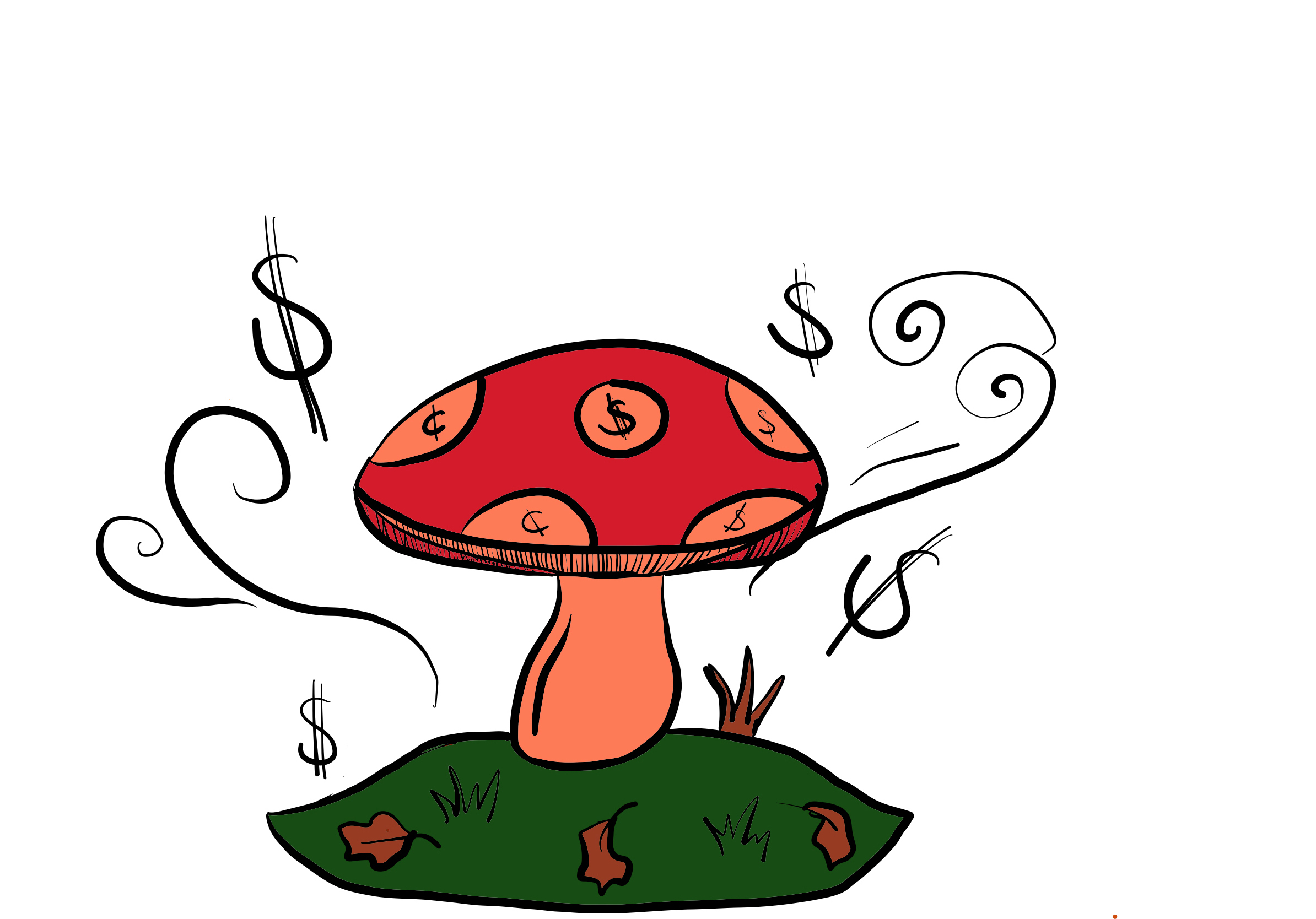Early fall: growth through decay in the garden
October 15, 2021
 This
piece represents the opinion of the author
.
This
piece represents the opinion of the author
.
 Juliana Vandermark
Juliana VandermarkWe are obsessed with growth. It was pointed out to me last week how normal it feels to hear about a 57 percent return rate on Bowdoin’s endowment, which pushed the number up into something astronomical for an institution of our size. I’ll paraphrase what this person asked me: “If we did not grow the endowment, would the trustees sit back and say ‘job well done?’ Would Clayton feel like his job was safe?” The answer is no, and it’s striking how institutional stability is predicated on growing. It shouldn’t be. We cannot always grow. To imagine so, we refuse the possibility of death. During these early autumn nights, I’m thinking about decay.
A friend and I took a walk through the woods near campus recently, and the day was overcast. Fungi surprised me everywhere on the forest floor: fall is their season. Enormous fruiting bodies like suction cups were emerging from the leaf litter, and I could see small and colorful mushrooms in every direction. Since I could not have told you a single common name for any of them, we pulled up a purple one to take home and identify. It had a cap colored like the face of the moon at dusk.
Mushrooms require dead life to flourish. They represent transience, and when holding a mushroom, it’s impossible to avoid the uncanny feeling of fleshy decay. Unlike the expected array of vegetables we’ve gathered from the garden in the last month, an abundance of mushrooms is unpredictable. Experimental composer John Cage loved collecting mushrooms for their “indeterminacy,” suggesting that they resisted any attempt at formal structure—much in the way that he and others overturned classical music’s detailed script. I’m coming to appreciate fungi for their invisible powers of undoing—powers that make them both vital to landscapes and potentially destabilizing to our bodies. Undoing is entropy. I am not used to considering entropy as something positive.
Undoing is antithetical to the College’s endowment. The capital in the endowment grows, yet the money is legally frozen in time. And still, the enormous endowment figure does political work for the College by showing off the resources we hold. The narrative coming from the top is one of many “fairy tales of eternal economic growth” (Greta Thunberg) in which some wealth is great, but more is always better. A note to the College: you were doing just fine before your endowment grew so much. Financial aid is a very small part of the fruits harvested from this bounty, according to last week’s Orient article. What, except pride, is spurring you to keep growing?
Losing yourself in the woods is more difficult than ever as land parcels in many regions of the world are fragmented, roads and new houses cutting between them. The features that run in between foraging places are dependent on oil and gas. I know it feels scary, but I have a faint instinct that within most of our lifetimes, we will reach a point where those energy-dense fuels aren’t easily available. Not for lack of abundance, but because of protest that those fruits that we’ve drilled out of the ground are destabilizing our world for the worse.
Growth is not stable, as much as we’d like to imagine it as so. Taking lessons from the mushrooms so close to campus would have us equally content with flourishing life and graceful death. There are times to grow humbly, close to the ground, and times to give your energies back—to decompose, crumble and artfully decay.

Comments
Before submitting a comment, please review our comment policy. Some key points from the policy: